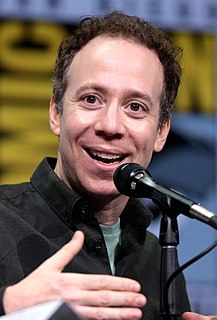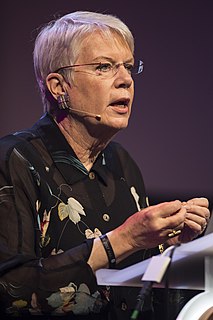A Quote by Seth Shostak
Clearly, enriching the cosmos with heavy elements takes a while. So there's inevitably an interval between the sterile aftermath of the Big Bang and a time when the cosmic chemistry set had enough ingredients to make rocky planets (and squishy biology).
Related Quotes
The universe starts off with the Big Bang theory, and the first thing that emerged from the Big Bang is essentially hydrogen and then helium. And that's what combusts in stars. Finally, stars implode, and they build heavier elements out of that. And those heavier elements are reconstituted in the heart of other stars, eventually.
One can imagine that God created the universe at literally any time in the past. On the other hand, if the universe is expanding, there may be physical reasons why there had to be a beginning. One could imagine that God created the universe at the instant of the big bang, or even afterwards in just such a way as to make it look as though there had been a big bang, but it would be meaningless to suppose that it was created before the big bang. An expanding universe does not preclude a creator, but it does place limits on when he might have carried out his job!
Modern thinking is that time did not start with the big bang, and that there was a multiverse even before the big bang. In the inflation theory, and in string theory, there were universes before our big bang, and that big bangs are happening all the time. Universes are formed when bubbles collide or fission into smaller bubles.
I’m always the same. Whether I’m solo or with Big Bang, the one thing I have to do is sing and dance. I started solo activities with the things I did well with Big Bang, and I’ll show the things I learned while doing solo through Big Bang. Wherever I go and whatever I do, I am Taeyang and Dong Young Bae.
But if you think about a practical implication of enriching your life and giving you a sense of being part of a larger cosmos and possibly being able to use this [gravitational waves] as a tool in the future maybe to listen not just to black holes colliding, but maybe listen to the big bang itself, those kind of applications may happen in the not too distant future.


































